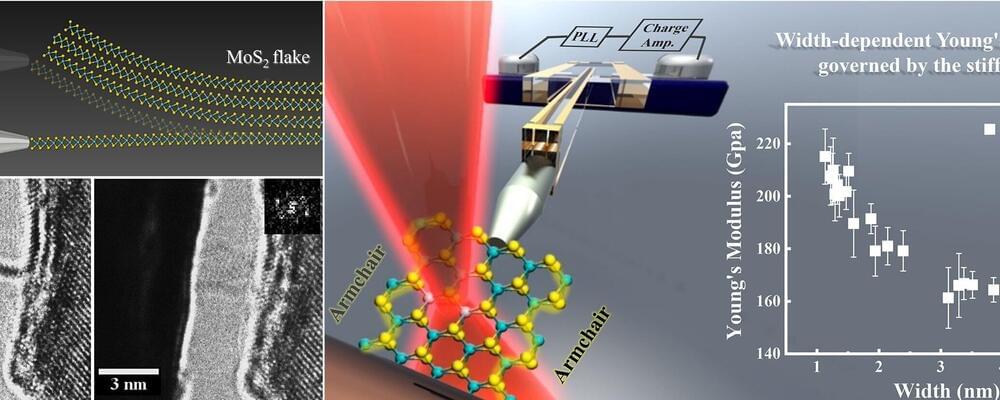The research says AI’s ability to deceive could lead to widespread fraud, political manipulation, and even terrorist recruitment.



Ash carter exchange remarks as prepared.
I’m grateful to be here today with a group of kindred spirits focused on tackling some of the hardest problems we face at the intersection of technology and national security.
Ash Carter devoted his life to working in this arena, and many of you are here because of the impact he had on you and your careers.


“This isn’t a conspiracy theory. Listen to former Israeli officials such as Brig. Gen. Yitzhak Segev, who was the Israeli military governor in Gaza in the early 1980s. Segev later told a New York Times reporter that he had helped finance the Palestinian Islamist movement as a ” counterweight” to the secularists and leftists of the Palestine Liberation Organization and the Fatah party, led by Yasser Arafat (who himself referred to Hamas as ” a creature of Israel.”)
The Israeli government gave me a budget, the retired brigadier general confessed, and the military government gives to the mosques.
Hamas, to my great regret, is Israel’s creation, Avner Cohen, a former Israeli religious… More.
What do you know about Hamas?
That it’s sworn to destroy Israel? That it’s a terrorist group, proscribed both by the United States and the European Union? That it rules Gaza with an iron fist? That it’s killed hundreds of innocent Israelis with rocket, mortar, and suicide attacks?

The properties of nanoribbon edges are important for their applications in electronic devices, sensors, and catalysts. A group of scientists from Japan and China studied the mechanical response of single-layer molybdenum disulfide nanoribbons with armchair edges using in situ transmission electron microscopy.
They showed that the nanoribbon Young’s modulus varied inversely with its width below the width of 3nm, indicating a higher bond stiffness for the armchair edges. Their work, published in the journal Advanced Science, was co-authored by Associate Professor Kenta Hongo and Professor Ryo Maezono from JAIST and Lecturer Chunmeng Liu and Lecturer Jiaqi Zhang from Zhengzhou University, China.
Sensors have become ubiquitous in the modern world, with applications ranging from detecting explosives, measuring physiological spikes of glucose or cortisol non-invasively to estimating greenhouse gas levels in the atmosphere.
“Some men just want to watch the world burn.” Zachary Kallenborn discusses acts of existential terrorism, such as the Tokyo subway sarin attack by Aum Shinrikyo in 1995, which killed or injured over 1,000 people.
Zachary kallenborn is a policy fellow in the center for security policy studies at george mason university, research affiliate in unconventional weapons and technology at START, and senior risk management consultant at the ABS group.
Zachary has an MA in Nonproliferation and Terrorism Studies from Middlebury Institute of International Studies, and a BS in Mathematics and International Relations from the University of Puget Sound.
His work has been featured in numerous international media outlets including the New York Times, Slate, NPR, Forbes, New Scientist, WIRED, Foreign Policy, the BBC, and many others.
Forbes: New Report Warns Terrorists Could Cause Human Extinction With ‘Spoiler Attacks’
https://www.forbes.com/sites/davidhambling/2023/06/23/new-re…r-attacks/
Schar School Scholar Warns of Existential Threats to Humanity by Terrorists.
Dr. Robert Floyd, Ph.D. is Executive Secretary of the Comprehensive Nuclear-Test-Ban Treaty Organization (CTBTO — https://www.ctbto.org/), the organization tasked with building up the verification regime of the Comprehensive Nuclear-Test-Ban Treaty, a multilateral treaty opened for signature in 1996 by which states agree to ban all nuclear explosions in all environments, for military or civilian purposes.
Prior to joining CTBTO, Dr. Floyd was the Director General of the Australian Safeguards and Non-proliferation Office (ASNO), where he was responsible for Australia’s implementation of and compliance with various international treaties and conventions including the Comprehensive Nuclear-Test-Ban Treaty, Nuclear Non-Proliferation Treaty, Convention on the Physical Protection of Nuclear Material (CPPNM) and the Chemical Weapons Convention.
During his time as Director General of ASNO, Dr. Floyd also chaired the advisory group to the Director General of the International Atomic Energy Agency on safeguards implementation (SAGSI), co-chaired the Preparatory Committee for the review of the amended CPPNM, co-chaired one of the working groups of the International Partnership for Nuclear Disarmament Verification, was the lead official for Australia in the Nuclear Security Summit process, and chaired the Asia-Pacific Safeguards Network.
Prior to his appointment with ASNO, Dr. Floyd served for more than seven years in the Department of the Prime Minister and Cabinet where he held a number of senior executive positions providing advice to the Prime Minister on policy issues covering counter-terrorism, counter-proliferation, emergency management, and homeland and border security.
Dr. Floyd was awarded a commemorative medal on the 30th anniversary of Kazakhstan’s independence in recognition of the strong and enduring partnership between the CTBTO and Kazakhstan on nuclear non-proliferation, disarmament, peace, and security. Dr. Floyd also received the Australian Nuclear Association (ANA) award for 2021 in recognition of his outstanding leadership role as Director General of the ASNO.
With a Ph.D. in population ecology, Dr. Floyd spent the first 20 years of his career as a research scientist with the Commonwealth Scientific and Industrial Research Organization (CSIRO).
Sam Harris is an American author, philosopher, neuroscientist, and podcast host.
His work touches on a wide range of topics, including rationality, religion, ethics, free will, neuroscience, meditation, philosophy of mind, politics, terrorism, and artificial intelligence.
His academic background is in philosophy and cognitive neuroscience.
An older article but something the world is facing just like in certain sci-fi movies.
The reference publication of the movement in the 80s, the Earth First journal, featured a column called Ask Ned Ludd, in reference to the mythical character that gave name to the luddites. Jones thinks that neo-luddites are in fact misreading the original luddites, but he believes that understanding the difference between the old and modern ones tells us a lot about the ideology of the latter.
“Luddites were not anti-technology: they were skilled craftsmen, involved in a labour movement aimed at keeping their machines and their jobs,” he says. “That’s very different from the neo-luddites ideas of relinquishing civilisation and [of] nature as the supreme good.” Jones thinks neo-luddism is fed rather by “the idea of technology as a disembodied, transcendent, terrifying force outside the human”, which emerged in the mid 20th century, with the bomb and the rise of large-scale computing.
Is Director of the Division of Research, Innovation and Ventures (DRIVe — https://drive.hhs.gov/) at the Biomedical Advanced Research and Development Authority (https://aspr.hhs.gov/AboutASPR/ProgramOffices/BARDA/Pages/default.aspx), a U.S. Department of Health and Human Services (HHS) office responsible for the procurement and development of medical countermeasures, principally against bioterrorism, including chemical, biological, radiological and nuclear (CBRN) threats, as well as pandemic influenza and emerging diseases.
Dr. Patel is committed to advancing high-impact science, building new products, and launching collaborative programs and initiatives with public and private organizations to advance human health and wellness. As the DRIVe Director, Dr. Patel leads a dynamic team built to tackle complex national health security threats by rapidly developing and deploying innovative technologies and approaches that draw from a broad range of disciplines.
Dr. Patel brings extensive experience in public-private partnerships to DRIVe. Prior to joining the DRIVe team, he served as the HHS Open Innovation Manager. In that role, he focused on advancing innovative policy and funding solutions to complex, long-standing problems in healthcare. During his tenure, he successfully built KidneyX, a public-private partnership to spur development of an artificial kidney, helped design and execute the Advancing American Kidney Health Initiative, designed to catalyze innovation, double the number of organs available for transplant, and shift the paradigm of kidney care to be patient-centric and preventative, and included a Presidential Executive Order signed in July 2019. He also created the largest public-facing open innovation program in the U.S. government with more than 190 competitions and $45 million in awards since 2011.
Prior to his tenure at HHS, Dr. Patel co-founded Omusono Labs, a 3D printing and prototyping services company based in Kampala, Uganda; served as a scientific analyst with Discovery Logic, (a Thomson Reuters company) a provider of systems, data, and analytics for real-time portfolio management; and was a Mirzayan Science and Technology Policy Fellow at The National Academies of Science, Engineering, and Medicine. He also served as a scientist at a nanotechnology startup, Kava Technology.
Dr. Patel holds a US patent issued in 2005 and has authored over a dozen peer-reviewed articles in areas such as nanotechnology, chemistry, innovation policy, and kidney health.
Dr. Patel earned his Ph.D. in physical chemistry from the Georgia Institute of Technology, and has a bachelor’s degree in chemistry from Washington University in St. Louis.